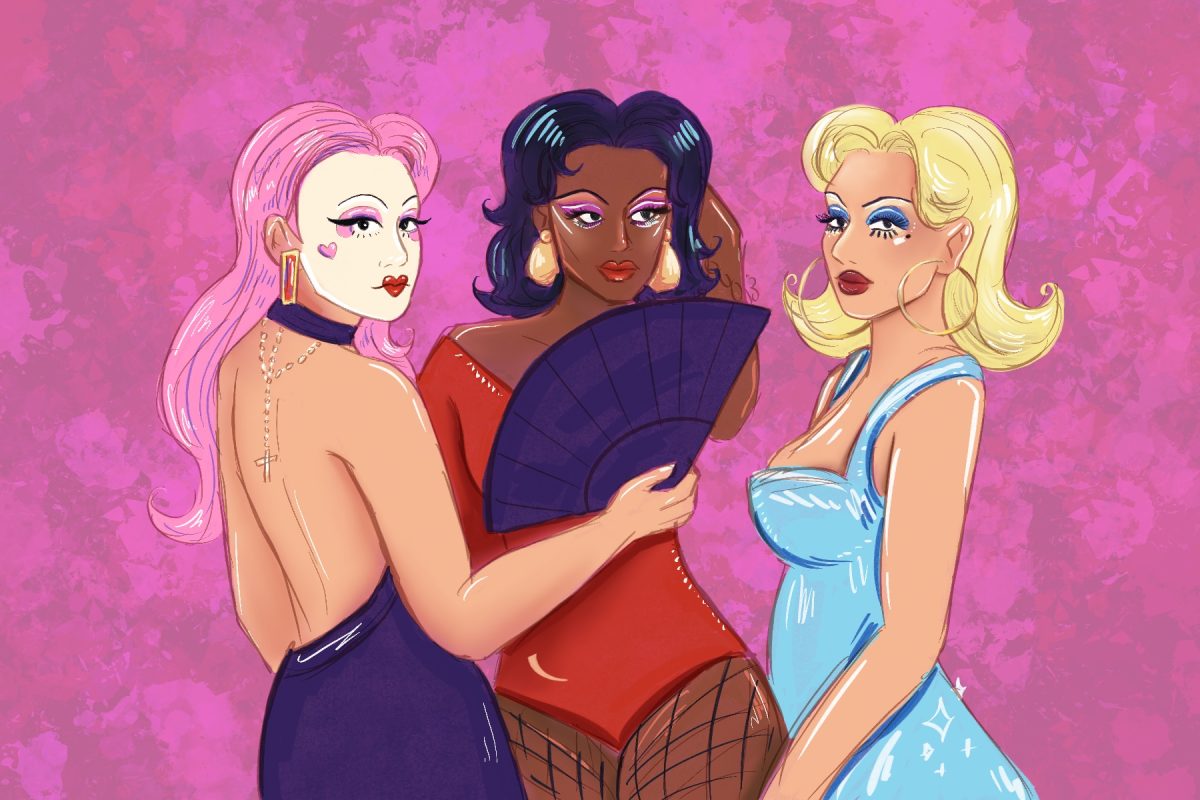 Flannel shirts. Black-rimmed glasses. Indie music. Put these three things together and you’ve got some of the most common components of the stereotypical definition of what urban society has labeled a “hipster.”
Flannel shirts. Black-rimmed glasses. Indie music. Put these three things together and you’ve got some of the most common components of the stereotypical definition of what urban society has labeled a “hipster.”
One UA senior, though, Mari-Ana Johnson, said the stereotype is far from the reality when it comes to what a hipster actually is. The culture is all about individuality and not fitting into a society-engineered label, she said.
Johnson said she does not consider herself a hipster, but is often referred to as such among friends. She said she believes her confidence, individuality and willingness to be different without trying lead to her being branded as a hipster.
“One of my friends the other day told me that everybody else he knows is detached from themselves and that I was the person who was most aware of themselves,” Johnson said.
Many people are uncomfortable being labeled as a hipster because of its negative connotations, but Johnson said she does not have a problem with it.
“I definitely feel like it’s like a combination of all things,” Johnson said. “I know people who wear skinny jeans and all that stuff, but that doesn’t necessarily make them a hipster.”
These stereotypes and negative associations are partially because of the misunderstandings and misrepresentations of the term within common society. Websites such as hipsterhandbook.com help to show the term in a negative light.
According to the introduction page to The Hipster Handbook, “The Hipster walks among the masses in daily life but is not a part of them and shuns and reduces anything held dear by the mainstream.”
The website claims to be geared toward the genuine hipster community.
The belief that hipsters are completely separate from society because they disdain everything others find popular is an exaggeration, Johnson said. Her taste in music certainly varies from what is happening in the mainstream market, but she is willing to listen to it within the right setting. She said she prefers other genres, such as folk and jazz.
“I think that today’s music and today’s hip-hop, don’t get me wrong, but a lot of it does not have meaning behind it,” Johnson said. “I think that the music that I listen to definitely influences my fashion choices and just the type of person I am.”
Other websites such as the popular UrbanDictionary.com have also taken a jab at defining what it means to be a hipster. According to the site, a hipster is someone who is “in their 20s and 30s that values independent thinking, counter-culture, progressive politics, an appreciation of art and indie-rock, creativity, intelligence and witty banter.”
But Johnson said hipsters are not so easily defined, because there is no list of requirements for being a hipster. Rather, being a hipster is a stylistic choice. It means having different interests in style and other cultural facets, such as music. It is not necessarily about going against the mainstream but rather doing what makes you comfortable and what you enjoy as an individual.
“I don’t feel like it necessarily means that you are stylish,” Johnson said. “I think it has a lot to do with your personality and the type of person that you are. The type of person that I am, I try to be carefree.”
Johnson was not refereed to as a hipster until she entered college. In high school, she had different tastes than others, but her different preferences in music and fashion led to teasing amongst her friends and classmates.
“I knew who I wanted to be, and I knew deep down who I was, but sometimes it’s really hard to just step out of the box and be different in a high school institution because you have bullying,” Johnson said.
Johnson said in high school, she was teased for the things that made her different. She held on to the things that she truly liked, but when she was at school or in social groups she refrained from putting her individuality on display.
“They were just like, ‘Why are you wearing that? What do you have on?’” Johnson said. “When people continue to do that to you, you’re just like, ‘Well, I’ll hold off on wearing that or listening to that.’ You start to separate what you like from what they like.”
She began listening to the music that she preferred when she was at home, but when she went out with her friends, she listened to the type of music that they were listening to.
“You just kind of go with the flow,” Johnson said. “That’s what I did for a long time.”
In college, Johnson was able to express herself more freely. As her tastes in music began to change, she found herself influenced by the fashions of the artists she was starting to listen to.
“I gradually changed once I got into college, which happens to everyone. Because I started listening to different artists and music, I started to pay attention to what they wore,” Johnson said. “And because I did that my sense of style became different. I feel like I’ve always had sense of style but it evolved into what it is now.”
Johnson began to embrace her individuality and, as she did so, she became comfortable with who she was and where her interests lay. As she became more self-aware, she became a “hipster.”
“I’m into expressing myself,” she said. “I am very comfortable in my skin.”
Johnson may not see anything wrong with being a hipster, but LJ Vining, a freshman majoring in mechanical engineering, has had a different experience with the label. He said his initial opinion of hipsters is that they tend to have a high opinion of themselves and look down on others.
“Being a hipster has both its positives and negatives. Positives being that you have your own style in a sense and you don’t seem to be afraid to do you,” Vining said. “On a negative standpoint, you have this attitude to where you think you are a bit better than everyone else.”
Hipsters may be bittersweet in Vining’s mind, but he said he thinks hipsters are identified by their individuality.
“A hipster is someone who basically breaks from what everyone considers trending and basically does everything that is considered underground,” Vining said.
While Vining thinks hipsters tend to be on the “uppity” side, Johnson said the last thing she wants to do is appear judgmental of other people’s styles. Being a hipster, for Johnson, is not about looking down on others because they have different interests than you. Rather, it is important to be comfortable enough with your own style that you just let it be.
“I think that now the term hipster kind of means that you are a stylish person, yet you don’t try to be stylish,” Johnson said. “It just kind of happens.”
Johnson said the best way to summarize a hipster is as someone who is different without having to put effort into it or without feeling like they have to defend their interests to others.
“As far as thinking that being a hipster is negative, I don’t think it’s negative at all. I think as you grow you just develop your own type of comfort, and that’s what started to happen to me,” she said. “I started to think about what I liked and not necessarily caring about what my friends liked.”









